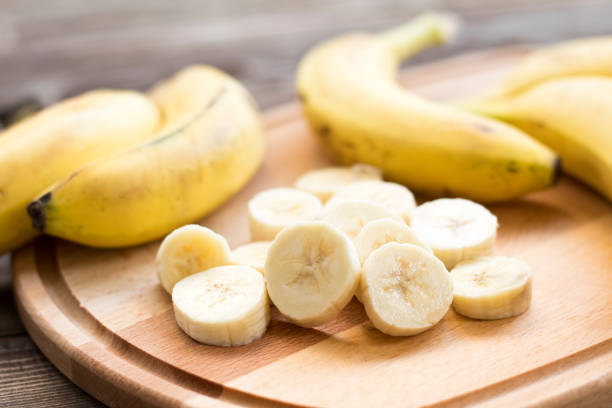The Health Benefits of Bananas
Bananas are one of the most popular fresh fruits in America for their sweet taste, nutrient-rich skin, ease of accessibility and versatility. They’re also loaded with potassium, vitamin C and other key vitamins and minerals.
Bananas are a quick source of energy because they contain carbohydrates, which fuel your body’s cells. They also have soluble fiber, which slows digestion.
Carotenoids
Researchers found that a medium banana provides your body with the antioxidants lutein, zeaxanthin, b-carotene, (E/Z)-phytoene and a-cryptoxanthin. These are carotenoid compounds that are important for eye health.
A ripe banana is rich in soluble fiber and contains the amino acid tryptophan, which the body converts to serotonin. Adequate levels of serotonin help regulate your moods and increase feelings of happiness.
Bananas are also a good source of vitamin B6, folate, potassium and magnesium. They are low in sodium and fat-free, and have a moderate calorie count. They are a good choice for those who want to lose weight, according to a 2015 study published in the journal Nutrition Research Reviews. In addition, a medium banana provides about 9% of your daily needs for vitamin C.
Vitamin C
Bananas contain vitamin C, which is an antioxidant that reduces oxidative stress. Oxidative stress is linked to many chronic diseases, including heart disease and cancer.
A medium banana provides 10% of the daily requirement of vitamin C. Bananas are also a good source of potassium. This mineral helps regulate blood sugar, promotes muscle and nerve function, and boosts the immune system.
One medium banana contains three grams of fiber. This fiber binds with the waste and toxins in the digestive tract and helps support regularity. Unripe bananas also contain resistant starch, which escapes digestion in the small intestine and passes into the large intestine where it adds bulk to stools. The fiber in bananas also slows digestion and helps you feel full longer. (2)
Vitamin B6
Bananas are a good source of vitamin B6, an essential nutrient that helps your body use protein and make carbohydrates. They also contain tryptophan, a type of amino acid that the body converts to serotonin and melatonin, which promote healthy sleep patterns.
Banansas are high in fibre, which may help you feel full and control your appetite. They also have a low glycemic index, which means they don’t spike your blood sugar levels.
Eating green or unripe bananas gives you resistant starch, a type of carbohydrate that doesn’t get digested in your small intestine and instead ferments in your large intestine to feed good bacteria. These probiotics improve digestive health and may help prevent constipation and diarrhoea. Bananas also provide prebiotic fructooligosaccharides (FOS), which may reduce inflammation and support your immune system.
Magnesium
As a potassium-rich food, bananas are known to help lower blood pressure and protect against heart disease. But they also provide magnesium, vitamin C and dietary fiber. A medium-sized banana provides 3 grams of soluble fiber, which can help promote regularity and keep waste out of the colon. Green bananas are also rich in pectin, a form of resistant starch that helps feed the good bacteria in your digestive tract (particularly Bifidobacterium and Lactobacillus).
Magnesium is an essential mineral involved in more than 300 biochemical reactions in our bodies. It promotes muscle health and relaxation, supports heart health and plays a role in balancing blood sugar levels. A diet low in magnesium may contribute to metabolic syndrome, a group of risk factors for heart disease and diabetes.
Potassium
The potassium in bananas helps lower blood pressure. A medium banana provides 422 milligrams, or 10% of the daily requirement based on a 2,000-calorie diet. Potassium helps the body get rid of excess sodium through peeing and relaxes blood vessel walls to ease blood flow and reduce blood pressure, a risk factor for heart disease.
Bananas also contain the amino acid tryptophan, which gets converted to serotonin in the brain and may help reduce stress. A protein found in bananas called lectin may inhibit the growth of leukemia cells and other cancers, according to laboratory studies.
Antioxidants in bananas, such as vitamin C and magnesium, can help prevent oxidative stress, which leads to disease and aging. One medium banana provides 11% of your recommended daily intake for vitamin C.



